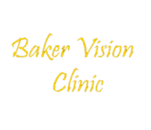What is Low Vision?
Low Vision is not the same as blindness. People with low vision still have some useful vision except it cannot be totally restored by conventional glasses, contact lenses,
medical treatment, or surgery. Over 4 million Americans have low vision. 68% of those with low vision are over 65 years of age.
What are the major causes of low vision?
Low vision can be due to an injury, disease, aging or hereditary factors. Some of the most common causes of low vision are macular degeneration, glaucoma, diabetic retinopathy, optic atrophy,
retinitis pigmentosa, retinal detachment, and stroke. Regardless of the cause of vision loss, we offer patients options that will enable them to use their vision to its fullest potential.
How is the low vision patient helped?
We begin our low vision examination by asking questions about the history of your vision loss, what difficulties you are having performing tasks such as reading, writing, personal hygiene,
cooking, and watching television. We will look for activities you have discontinued or have difficulty performing due to the vision loss. Throughout the examination we will be looking for
ways to help you accomplish the tasks and activities that you desire.
Learn To Use New Devices
Most people with low vision can become more visually independent if they make a commitment to learn how to use low vision aids and devices, as well as learn new methods to perform everyday
tasks. There are many different devices available for a person with low vision, including magnifiers, telescopes, microscopes (high plus lenses for reading), and enhanced
lighting. Televisions and computers are often used to enlarge images and text.
Vision Rehabilitation Plan
After completing the low vision examination, we will design a vision rehabilitation plan. The plan will include the goals to which you have agreed. We will provide the devices that best
fit those goals and your lifestyle. We will provide the training and support that will be the most helpful. This plan may include a referral to other supporting services and
agencies.
Continuing Care
At subsequent visits, we will evaluate your progress in using these devices. We will look at how these are helping to improve your independent living activities
such as cooking, shopping, reading mail, handling your own bookkeeping and recreation. We may assist you in the use of computer technology and electronic reading devices if you have specific
goals that can be met by them.
The Benefit
Adjustment to any vision loss is difficult. It takes self-acceptance, determination, support of family and friends, and learning new techniques to fully utilize any remaining vision. The goal
of the Low Vision Services is to enable people with low vision to improve their ability to use their remaining vision so they can be independent and better able to meet the demands of
everyday living.
